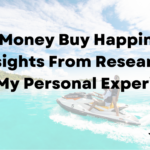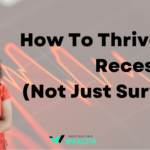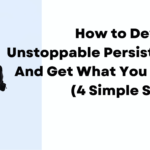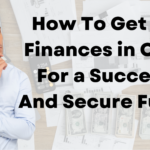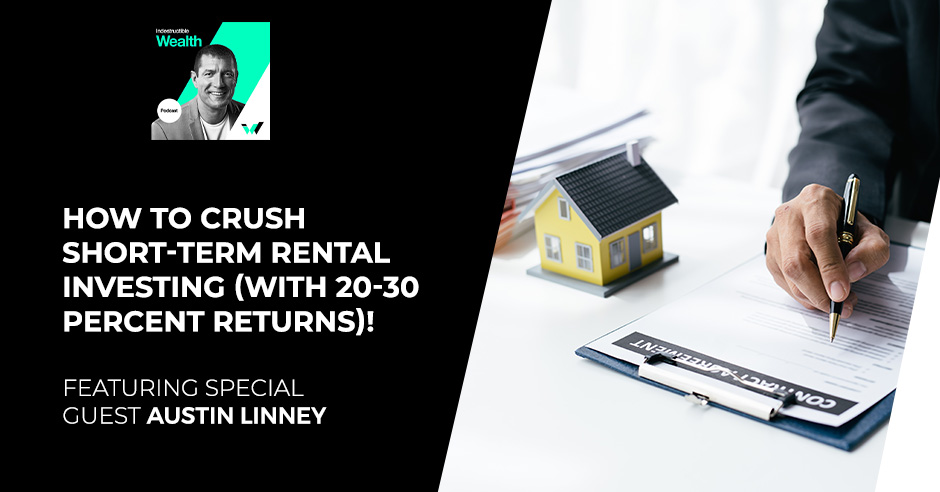
He’s been up, and he’s been down. Along the way, real estate investor and entrepreneur Austin Linney has learned how to make a dependable profit in the short-term rental market and the kind of inner work required to be successful in any investment. Learn more about Austin on his podcast, “Construct Your Life,” at austinlinney.com
In Indestructible Wealth News: My book, “Building Indestructible Wealth: The Six Figure Earners Guide to a Multimillion-Dollar Portfolio,” launches today! Get your print and audiobook copies and a few other timely insights into what to invest in right now at this link: https://bit.ly/3xjGFQ7
Do you have a question you would like me to answer on the podcast? Follow me on IG: @indestructiblewealth and send a message, or visit me at www.myindestructiblewealth.com for more resources.
—
Listen to the podcast here
How To Crush Short-Term Rental Investing (With 20-30 Percent Returns)! Featuring Special Guest Austin Linney
On this episode, I have a special guest, Austin Linney and he is a beast. He’s got over 400 podcasts that he’s done all about real estate investing in short-term rental, Airbnb. He’s a coach and a consultant. He also has eight companies that he’s running along with building out a large short-term rental Airbnb portfolio. He had to overcome a lot of limiting beliefs and some very bad habits that were going to dive into on the show in order to awaken his full potential. Buckle up. You are going to see how this guy is absolutely crushing it with 20% to 30% minimum annualized returns on a short-term rental portfolio and how you guys need to tap into the same exciting rental cashflow market.
Please help me welcome our special guest, Austin Linney. Let’s dive right into it. Austin Linney, welcome to the show. Thanks for being here. I’m excited to dive into multiple streams of income, short-term rentals, different investing buckets, and all about your eight companies. This is exciting. Also, podcasts with over 400 episodes. That’s consistency and that’s amazing. Thanks for being here.
I appreciate it. Thanks for having me on.
Austin, tell us a little bit about yourself, your background, and how you got started in entrepreneurship and investing, and we’ll take it from there.
It’s interesting. If you look from the outside, my dad was a dentist for 40-plus years. I grew up in a nice neighborhood with a golf course and the whole nine. When I was seventeen, the school wasn’t in my bag. I had a photographic memory, but I didn’t enjoy it. I didn’t find it challenging. When I was seventeen years old, I remember it like it was yesterday.
My friend’s dad had a couple of businesses and he handed me a purple book that was Rich Dad Poor Dad. He said, “You’re different. Read this and report it back to me.” I read it in one weekend and I was like, “Oh my God.” The light bulbs switch on. I knew the concept of, “How do I get better than my dad?” My dad makes a ton of money and I’m not going to do it the traditional way.
At about seventeen years old, my parents got divorced too. I blamed myself for the divorce. It took me into a tailspin of drug addiction, alcoholism, homelessness, and that whole can of worms in my early 20s. Knowing what I wanted to do with real estate and stuff, but distracting myself with alcohol addiction and a marriage that didn’t serve me. I think it resonates with a lot of people of having the ideas and knowing what you want to do, but not being able to execute them because you weren’t setting yourself up for success or you’re surrounded by the wrong people and so on.
When I was 34, I felt like my dreams were way bigger than the people I was around. I joined a mastermind of these real estate guys that had 3,000 units, 85 Airbnbs, and 34 Airbnbs. It was like this crazy town, “This is what I’ve been looking for.” There are people from Puerto Rico, Portugal, and everywhere doing real estate. We had a contest. They had groups that came in together. There were many of us that came in together. You could have a 30-minute meeting with everybody. Who could have the most 30-minute meetings in a three-week stretch?
Is it with each person in your mastermind?
Right, a 30-minute meeting. In the mastermind, there were 290 people. People had 6, 5, or 7. I had 97 meetings and I met all these guys and they were like, “Kid, you’re all over the place. You’re a ball of energy and you’re still drinking, but there’s something there. Look at me in the face and know that you and I were no different. I got started with better help around me and was able to start on my path earlier. You can do this.” It was like taking their belief and giving myself the credit and saying, “There’s something there. It’s sloppy and messy, but you’re going to figure it out if you keep putting action to the pavement.”
I started a business with 2 gentlemen that were 9 months and 13 months sober. We started co-hosting across the country. They were like, “If you’ve ever thought about getting sober, give it a shot.” That started my sobriety. We grew that company to manage 27 properties in 7 states in 5 months. It was bananas. It was crazy. We were flying all over the country. I left my W-2. We had no money. I wound up losing $30,000 in the business because I and one of the partners didn’t see eye to eye.
I beat myself up for that situation but when I stood back and I looked back at the situation, I had a good friend that I respect. He’s like, “Did you go to business school?” “No. I dropped out of college three times.” “Consider that $30,000 that you spent in the best business school of your entire life. You learned how to run a business and what not to do.”
The school hard knocks are the best way of learning everything.
“Also, you got sober in the process. What price tag is that?” Among the other million stories, I could tell you, that story reshaped what you see now. It’s taking the opportunity to burn the boats and better myself.
Tell us a little bit about getting sober.
I’ve been sober for a few years.
Congratulations.
Thank you. I’ve lost 80 pounds. Creating the space where you’re lying to yourself every day about, “I’m fine.” I was drinking every day. I wasn’t drinking a ton, but I was like, “I had a hard day at work. I worked all day. Let me go to drink.” It was the subconscious stuff and I told myself, “This can’t be it. You’re born for greatness and to lead people. You’re born to create multiple businesses.”
A mentor asked me. He said, “If you were in a room a few years from now with a bunch of billionaires and you deserve to be there, what’s the one thing holding you back?” Without even thinking about it, I said, “Alcohol.” Subconsciously, it was there and that planted the seed to start. It wasn’t easy, but I made the shift. I tell people about health all the time. Chase the feeling. Don’t chase the result.
If you were in a room 10 years from now with a bunch of billionaires, and you deserve to be there, what's the one thing holding you back? Share on XI was feeling great about myself, healthy, happy, and clearheaded. I said, “What if I was this way for the rest of my life? What could I accomplish?” I kept chasing that feeling and eventually, the want to drink and the need for it removed itself. Now, here we are. We are living it and helping other entrepreneurs. Remember that addiction, just because they label it as alcohol has many forms like addiction to your phone, victimhood, and all these things. The seed of addiction has run rampant through most things if you look at it. It takes different forms.
I was addicted to working for a long time, chasing success, and achievement. What’s the next level that I can reach? One thing I found too with alcohol is during COVID, I think like a lot of people. You were so bored and didn’t have anything to do. You’re in lockdown. You turn to that. I’ve not ever had a very serious problem, but I was finding myself after COVID having a drink about every night to try to calm down.
As entrepreneurs, our minds race too because there’s always something that we could be doing to drive our businesses forward. I had a hard time shutting that down in the evening. I had to look at what are some other things that I could do that are healthy that could help me calm my mind and spirit down so that I could relax, shut work off, and be with the family and be present, chill and enjoy life.
I switched my workouts to the evening. I started doing some CBD oil that helped me calm down. I started the sauna a lot of times in the evening. We got a sauna in our home. It helps me to calm down. For a lot of entrepreneurs, it is a struggle. They do have a struggle with alcohol, at some level, I would imagine. That’s inspiring what you’re doing because it makes such a difference in your energy level. Even cutting out a couple of drinks in the evening, you’re going to feel so much better the next morning. You have an incredible turnaround story. You got into real estate. What forms of real estate are you doing? Are you in a specific niche? What does that look like?
I bought some single-family homes. I did a couple of remodels and some stuff like that. It’s nothing crazy. We eventually turned those into three Airbnbs I had on my own. I was cleaning them all, working, and figuring it all out. I made $113,000 gross and I was like, “This is a thing. It works.” I’m working and sleeping at a friend’s house on an air mattress while I’m renting out the houses. It’s a whole thing.
We then started co-hosting for people. I was co-hosting and I was like, “These investors are super annoying. I don’t know if I like this all the time.” For me, it’s always been people. My business is people. I would love to support, coach, teach, and elevate humans. For a long time, I worked in private equity. I lended to investors. I learned how money was working. I was running an Airbnb business, but not running it.
We were not taking clients. We were servicing our own. I’ve been sitting around and one day, being 100% truthful, I had a vision or a thought come to me when I was getting a massage and I asked the masseuse to stop. I was coaching him a little bit. I busted out a whiteboard and I mapped out this business and that’s the business that we’re currently inside.
It’s crazy how it hits you at the least time that you would expect. Usually, people say it’s when you’re relaxed. When are you more relaxed than a massage?
We will be wanting to create a hybrid private equity/fund business. We own a marketing and a sales company. We own a fund to buy short-term rentals. We have a consulting business. I have my coaching business. I co-host, and a wholesale business that we’re about to start. All these businesses are funneled into each other and we have CEOs in each business. There’s a three-tier ownership stake and we’re all coaches and consultants with different strengths. We meet with them weekly and feed into them.
We take that business because I run a couple of companies in my consulting business. I run a health insurance business in the crypto space. We’re supporting the company with our team. We’re like a 2nd pair of hands, 3rd pair of hands, or 4th pair of hands. Some of those companies give us equity. Some of them pay us a fee, but it’s more of a family relationship. That’s what we’ve created over the last few months here because I was mainly mindset and performance coaching for myself.
I love everybody. As much as I want to help my one-on-one clients, which I love, I can’t help but want to help their second in command. When I’m coaching the CEO, I’m like, “What about the sales guy down there that’s just started? I want to support him too. We had the people.” We started getting into bigger company consulting and I love it because I’m a culture-obsessive person.
I love culture. I believe that with culture and consistency, you can destroy everything. I have an innate ability to feel people out and I’m like, “Bob’s negative. We got to get Bob out of here.” I love that because a lot of times as entrepreneurs, we can’t breathe. We’re trying to make the business successful, but we’re handling sales, marketing systems, and bookkeeping. It’s these nine different things and how can you even breathe outside? We come in as assistants and I am loving every part of it.
Within that as I spoke about before, we have an avenue to make cash up front, then we’re investing a portion of that cash in a profit first system, which then is funneled into another fund that’s going to be invested in syndication and real estate deals. There are your long-term assets and then we own equity in the companies. We’re creating wealth on exits. Now, you’ve created the three buckets that I mentioned earlier of how we’re generating cash. Each business has to stand on its own, but then we’re taking a portion of the proceeds out and then investing that into long-term assets, Airbnb, commercial real estate, and stuff like that.
We’re getting the bigger payouts on the quarterly distributions or the exit or the sale of a company or of an IPO. That’s the way that we’ve structured it to hit all the buckets to make sure we have enough cash to live. The way it would look on the wealth spectrum is that you have 30% to 35%. You’re living on less. We don’t need all the things. Another 30% goes into long-term investments, taxes, and stuff like that. The rest of it is broken up into charities and then a profit sharing for the employees and the CEOs of the company. That’s the way we looked at it. I don’t think that people need to maximize everything that they’re making.
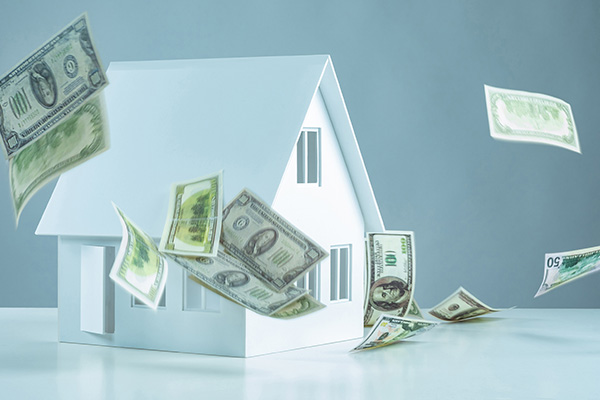
Short Term Rental Investing: Hit all the buckets to make sure we have enough cash to live.
When you say maximize out, do you mean spending 100% of all the income that is coming in?
Exactly. It’s like, “Put it away.” I love the analogy in Profit First, the book. He talks about thinking of business like a tube of toothpaste. Remember when you get a brand new tube of toothpaste, you’re squirting it everywhere. You’re sharing it and then when you get the toothpaste down to the bottom, you’re rubbing it on your elbow. You’re like squeezing it. You’re trying to get the last bit out. He goes, “Run the business like the empty tube of toothpaste. Leaner, cleaner, put some money aside, and forget about it.”
When you do that, it allows you to create profit margins and be more creative in your mind living and resting on your laurels of, “We’re successful.” A lot of people, what I’ve noticed, try to out-earn their deficiencies. I’m not going to get my books in order. I’m going to go sell a bunch, make a bunch of money, and don’t have to worry about it. That’s the story for every business that we come in contact with. “We’re just going to out-earn our problems.” Yes, but that only lasts for so long.
I’ve been guilty of that before. I’m not going to lie. As you’re saying, that’s very common as an entrepreneur. I also wonder how many people that are running a business have their QuickBooks or something.
First of all, do you want the answer? It’s zero. We’re going through four of the companies right now we’re consulting. We’re fixing their books, all four of them. We’re talking about seven different QuickBooks. It’s not small stuff. I met a guy. His advertisement is amazing. He’s out in San Antonio, CloudBookkeeping.com, Charlie. What I’m saying is if you don’t know what’s going on or what you’re bringing in, how can you even forecast the next hire? How can you even purchase that new business?
We have to set ourselves up for success when it comes to business. You’re talking to the guy that’s not the most organized human being in the world, but I’ve learned that I have to be. I have people on my team that are even better at it, business partners and assistants that are recapping the notes and getting the information out. My mantra for our companies is protecting the decision.
I want to protect the decision to make sure that the money decisions we’re making are getting bigger and bigger. I want to make sure those decisions are not based on ego and emotions. Where does that stem from? It stems from the moment that you wake up in the morning. Do you eat well? Do you take time for yourself? Do you read? Do you allow yourself to put on your armor first in the day so then you can go attack your client’s problems?
I can’t tell you how many guys I meet, especially new coaching clients. I’m like, “What time do you go to work?” “I go to work at 8:30.” “What time do you get out of bed?” “8:15.” That’s not good because I’m on the West Coast. I have a lot of clients in New York. My day starts at 4:00 AM. I start coaching at 4:00 AM but I still get up an hour and a half early to take that 45 minutes to read and walk in the morning for myself so I could show up.
Because when you show up on these calls, the guy’s like, “I want to leave my wife.” You’re like, “If I got up five minutes to go, do you think I’m in a place to handle the gravity of that emotion, or do I want to sell my business?” Respecting the space that you’re in with a client is super important as giving yourself the armor to allow yourself to show up for your client.
Respecting that space you're in with a client is super important, and then giving yourself the armor to show up for your client. Share on XI was playing poker with some buddies and we were up pretty late. This was the morning where I missed my morning and I could feel that I missed it. I usually read for about 30 to 60 minutes. I get the stretching, the water, the supplements, and the good healthy breakfast. When those things and elements aren’t there, it affects the day.
It does and here’s the issue. It’s not so much even on the first day. It’s the day after that. It’s like this compound effect. One of my favorite books in the entire world is The Slight Edge. It’s old school. For all you road dogs out there, Atomic Habits is the new good version.
Is it James Clear?
That’s Atomic Habits. Jeff Olson is The Slight Edge. What he’s saying is the problem with daily habits, those little bitty things is that eating the hamburger is not going to kill you, but eating the hamburger over 50 times over is not going to be the best for you. What he’s saying is those small things are easy as they are to do, they’re just as easy not to do.
It’s Jim Rohn. “What’s easy to do is also easy not to do.”
Understanding that and I had a call with a company, a team, and a bunch of young new kids. I was like, “How do you make the most amount of money?” They’re like, “I got to read the books. I got to know most about real estate.” I was like, “Not even close. You understand that there are no business problems. Business problems don’t exist. There are only personal problems wrapped up in business.” It’s understanding that you will only earn in direct correlation to the internal personal growth that you have.
It’s understanding that we don’t have business problems. If you have a sales problem, you have a communication problem. There’s not a sales problem. The clients are not listening to you. It’s that you don’t know how to articulate and communicate the proper way your product, your vision, and your service. Do we have to get down to the point of why you feel that way? What’s happened to you in the past?
That’s why we have a story work coach and a trainer on-site who handles the stories that you’re telling yourself. I handle the good swift kick in the ass and the vision. We have a systems guy. It’s understanding that all these parts have to work harmoniously together to create this whole thing. It’s not, “I want to start a business and I want to do this.” There’s a process that you can cultivate that over time can create a result. One of the things that are very interesting is wealth. Wealth is boring.
Airbnb as I call it is the hottest girl at the trailer park. Everybody wants to do it. I could go out and probably make $50 million selling an Airbnb course because everybody and their mother wants to sign up for it. What they don’t tell you is that the number one skill that exists within an Airbnb company that nobody’s ever talked about or shared a story on is to understand the psychology and the communication of your guest and to understand when they say this, what does that mean?
Because I’ve seen it so many times, I can tell you what the customer’s going to say verbatim. Those are the things that they don’t talk about. It’s more than putting beds in a theme. It’s understanding that when you start a business or create something that’s going to push against your lifestyle, is this something that you want to do?
I have an Airbnb company, but I’m not in control of any of the day-to-day messaging because I have enough going on that I can’t do that, but I had to structure the business the right way. This took me doing it the wrong way multiple times. Emotionally, I wasn’t in a place where I could handle it. On a scale, I was getting 120 messages a day at 9:00 at night or 5:00 or 4:00 in the morning. It was crazy.
When did you get started with Airbnb? Why did you decide to pivot into the market?
I always enjoyed it because I travel that way. I was like, “If I like that way, then I could host people the other way.” I worked in the hospitality business, hotel so I knew that aspect of it. I got started a few years ago. I started with an air mattress. It’s not a joke. Here’s the truth about Airbnb. I’ve tried to leave the space for four years straight. I tried to put it to bed. I’ve tried to get out of it but every time, it yanks me back in.
You get bored with it, yet it makes money.
No, I don’t get bored with it. I get frustrated with it because I don’t love certain aspects of the business. I don’t love the guy that owns Airbnb. He doesn’t give a shit about people. There are concepts of it, but understand that when I got started in Airbnb, the people that were traveling didn’t even know how to travel Airbnb. As much as we were hosting the house and learning how to host, we were then teaching the people, the guests staying how to be in an Airbnb. It’s not a hotel.
Now, that it’s matured a little bit, people are a little more understanding of what it is and what it means to Airbnb. There are a lot of aspects to how the business has matured. I do believe there are aspects of the business that are a lot more pleasurable to deal with because technology has caught up where it is. The technology matches what you want to do so you can automate most of it and create a win-win scenario with VAs and checklists and so on like that. There are a lot of moving parts to it, but it’s super exciting.

Short Term Rental Investing: There are a lot of aspects to how the business has matured. And there are aspects of the business that are much more pleasurable to deal with because technology is called up where it is.
What yields are you seeing from Airbnb?
Our floor is 20% cash on cash return. Most of the time, we’re seeing 30%, but we will not get in an investment if it’s lower than 20%.
If guys are not quite sure what he means when he says cash on cash returns of 20%. It’s very simple. If you have a property you buy for $100,000 in cash so you don’t use any leverage or debt, he’s expecting at least $20,000 net profits after all expenses on that $100,000 investment and a lot of times gets $30,000 on that $100,000 annualized. That’s over a course of a year. Those are incredible returns on real estate.
You’re only talking about the cash part. You’re not talking about the task appreciation, the write-offs, or the equity raise. It means that my big argument and this is where everybody gets upset with me. This is where we get them spicy. I like to do it to mess with people at this point. When I tell them that you can retire with two good Airbnbs, they get mad at me.
You’re saying essentially, retirement would be, for most people, $10,000 a month?
100%. I know a kid who’s 23 years old. They have three properties. He nets $20,000 a month.
What do you see for a successful Airbnb price point-wise? What were you purchasing them at?
For a single-family, I try not to go above $1.2 million. I don’t like the numbers out there. The sweet spot is about $275,000 to $570,000 that’s that feels like the gray area for me because the return matches the price you’re putting in now. In my opinion, that’s the sweet spot.
We’re totally aligned with you. We’ve put fifteen properties under contract and all of them were in that exact range. Maybe on the low end. Maybe we picked one up for $200,000 but most of them were $300,000, $400,000, or $500,000 deals. How are you structuring that with your investors? You mentioned something about a fund.
There are a couple of different ways we’re going to do it, but mainly, we’re looking for private capital on the frontend. We’re giving them a fixed return. We have people that are either signing with us or refining out to join us as a partner and then we’re giving them either a fixed return or some of the equity in cashflow. It’s hard to say because every deal is so different that we structure it. That’s the hardest thing with Airbnb. Every deal is different and you have to match it up with the investor that you’re looking for. That’s the biggest issue that real estate investors don’t have. They don’t respect. They’re all searching for a definite answer for me and I can’t give it to them.
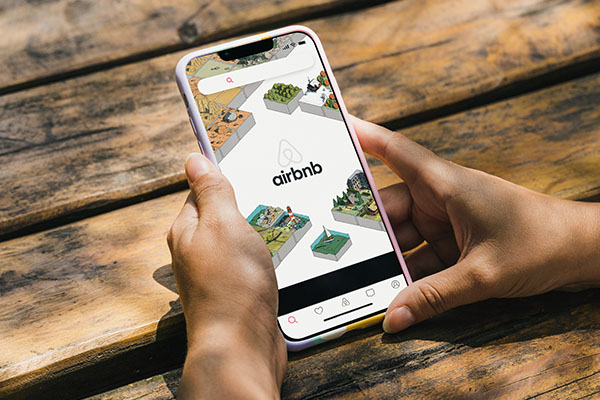
Short Term Rental Investing: The hardest thing with Airbnb is that every deal is different, and you have to match it up with the investor you’re looking for.
We’ve covered a lot of ground in a short period of time. I appreciate you being on, Austin. Any last parting advice that you have for my investor crowd, my readers here? They’re pretty young and getting started in investing. They’re trying to create multiple streams of passive income.
I would say that your first couple of investment properties are nothing more than practice and remember that it’s only 2x4s and Sheetrock.
Your first couple of investment properties is nothing more than practice. Share on XThey want to hit a home run right out of the gate. How can people get ahold of you if they want to follow you or listen to your podcast? Where are you at?
It’s AustinLinney.com. It’s got the podcast on it called Construct Your Life: How to Build a Lifestyle Not a Bank Account. You could check me out there. Hit me up on Instagram. If anybody from the show shoots me a message and tells me that you learned from me here, I’ll give you nine recordings of a free mastermind that I coach on Airbnb. I cover everything that exists in Airbnb and I’ll shoot that over to you.
That’s a fantastic gift. Thank you. This is the future over the next few years. One last question. How long do you see the Airbnb market?
I see it never going away. I see it morphing and changing as long as you keep your toes on you and I mean this wholeheartedly. I see myself Airbnb-ing until I’m 95 years old because it’s a way to earn an asset and have it work for you. I have a client up in Whitefish, Montana that bought a property. I showed them how to do it. They’re renting the property out from June to August 15th and it’s paying for itself. They’re making money and they get to enjoy their $5 million house for free.
It’s so exciting what we have at our fingertips. Thank you, Austin, for being on. I encourage you guys all to follow Austin and hit his site. Have a great day. Thanks again for tuning in. Austin, I appreciate you. Thanks for being on.
Thank you.

